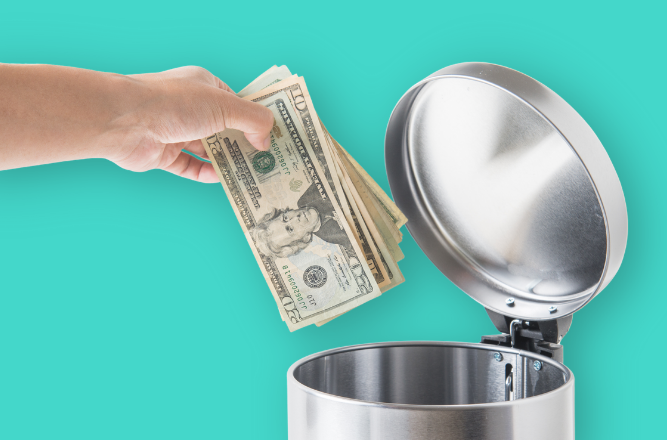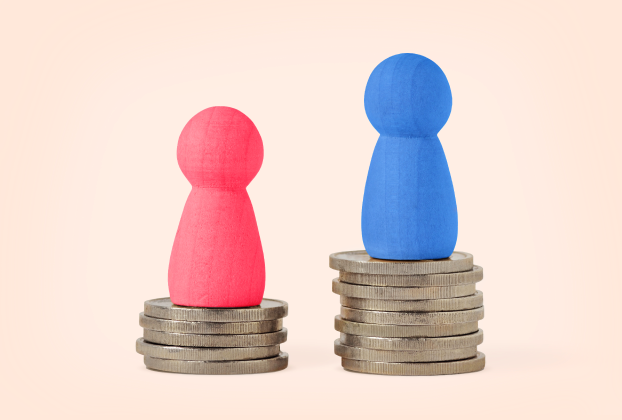A 2021 CBS article titled, Women in the Workplace and the Unfinished Fight for Equality explored the ways in which the Covid-19 pandemic set back much of the work done to expose and remedy the biases and inequalities women face in the workplace. The article featured the stories and perspectives of three women in particular.
The first, Cate Luzio, founder and CEO of Luminary shed light on the labels she was given over the course of her career that weren’t used to describe men in similar positions. Cate was called emotional, aggressive, harsh, and cold- leading her superiors to bypass her for multiple promotions.
The next woman, Mita Mallick, diversity and inclusion leader, spoke about the numerous ways she was belittled and bullied in the workplace. Mita also speaks about failing to get credit for her ideas and work, instead having to sit and watch as others accepted praise for the things she did.
The final woman, Farida Mercedes, speaks about leaving her career as an HR executive to care for her school-aged children during the pandemic. The article cites an alarming statistic: As of March 2021, there were almost 1.5 million fewer mothers of school-aged children in the workforce compared to February 2020, according to the U.S. Census Bureau. Some women chose to leave their jobs, but many others were laid off.
Despite progress made toward a more diverse, inclusive workforce in recent years, these anecdotes highlight just some of the challenges women continue to face regularly and highlight why this conversation is an important one to have, now more than ever.
Gender Bias in Sales and Other Male-Dominated Professions
Gender imbalance is a pervasive problem across various industries and occupations. Although an industry simply having a higher percentage of males or females isn’t necessarily problematic, the issue arises when there are systemic and societal obstacles preventing women from accessing and excelling in male-dominated spaces.
Sales, specifically, has a long history of being a male-dominated profession due to underlying gender bias. As a result, organizations often fail to support, protect, and nurture women in sales. This experience ultimately discourages other women from seeking out sales roles, thus perpetuating a vicious cycle. Consider these statistics:
- In 2022, Sales was ranked as the occupation with the tenth highest wage gap between men and women– with women earning $.91 to every $1 earned by men in equal roles with equal qualifications (source).
- Although women make up just over half of the college educated workforce, they hold less than one third of B2B sales jobs (source).
- Sexual harassment was listed in the top five most prevalent challenges faced by women in revenue roles in 2022– with even higher rates reported for Hispanic/Latina women, Native American women, and Black women in particular (source).
Despite the challenges women face securing, maintaining, and growing in a sales career, research shows that, when given the opportunity, women regularly outperform men. In fact, only 78% of men regularly reach quota attainment compared to 86% of women (source).
These statistics tell us one thing: Organizations aren’t doing enough to break down barriers and eliminate gender bias in sales.
The Impact of Gender Diversity on Revenue
Fostering a diverse and inclusive sales culture isn’t simply a good PR move– it also (and more importantly) has a massive impact on revenue generation, performance, and recruiting. Consider these statistics:
- McKinsey & Company’s report “Diversity Wins” found that companies in the top quartile for gender diversity on their executive teams were 25% more likely to have above-average profitability than companies in the bottom quartile. These same companies were less likely to have employee turnover rates (source).
- A study by Boston Consulting Group found that companies with above-average diversity on their management teams had higher innovation revenue, with 19 percentage points higher revenue from innovation compared to companies with below-average diversity (source)
- A report by the Harvard Business Review found that companies with diverse teams are 45% more likely to report growth in market share over the previous year and 70% more likely to capture a new market (source)
Although creating safe spaces for women to succeed shouldn’t require financial incentive, the research above proves there are no valid reasons for businesses to ignore, allow, or encourage environments that aren’t conducive to the success of all genders and backgrounds.
Amplifying Female Voices on International Women’s Day
This International Women’s Day and for the remainder of March, Spiff has decided to explore what it means to sell like a girl. We’ll be creating content that shines a spotlight on the pervasive gender bias found in sales and also content that celebrates the women paving the way for the next generation of female sellers.
Our hope is that doing so will not only raise awareness of issues many are quick to dismiss as problems of the past but also to amplify the voices of women in sales and give them a broader platform.
So, What Does it Mean to Sell Like a Girl?
What does it mean to do something like a girl? You throw like a girl. You run like a girl. You talk like a girl. It’s a throwaway comment that seems harmless at face value– but what does it really mean?
Of course, we know the phrase “like a girl” is often used as a negative stereotype to imply that someone, usually a male, is performing a task or activity in a weak or ineffective manner. The phrase is used to suggest that performing a task “like a girl” is a sign of weakness or inferiority, implying that females are weaker or less capable than their male counterparts.
A simple phrase heard on playgrounds around the world can have a damaging effect on the self-esteem and confidence of young girls, who often internalize these messages and begin to believe they’re not as capable as their male counterparts– both consciously and subconsciously.
In an effort to challenge this stereotype, we’re using this phrase to introduce our Sell Like a Girl series. The goal is to take something used to infer weakness and leverage it symbolically to shine a light on both the progress we’ve made and also on how far we still have to go.
The next installment in this series will be published next week. We asked women in sales to share some insight or advice they wish they could give their younger self. We hope you join us then!
A Final Note About This Series
We want to take a second to point out that, although this series focuses on the experiences of women in sales, we understand that steps need to be taken to foster safe, diverse, and healthy environments for everyone. We also recognize that female minorities in particular face bias, harassment, and discrimination at disproportionately high rates compared to the averages seen in this article.
The last point we want to make is that we recognize that much of the widely available data on gender in the workplace, and in sales specifically, isn’t inclusive of individuals who fall outside the gender binary. As more data becomes available, we hope to paint a more complete and inclusive picture of sales as a profession.
About Spiff
Spiff is a new class of software that creates trust across the organization by delivering real-time automation of commission calculations and motivates teams to drive top-line growth. With a combination of an intuitive UI, real-time visibility, and seamless integrations into current systems, Spiff is the first choice among high-growth businesses. Spiff’s sales commission software enables finance and sales operations teams to self-manage complex incentive compensation plans and provides transparency for sales teams.






